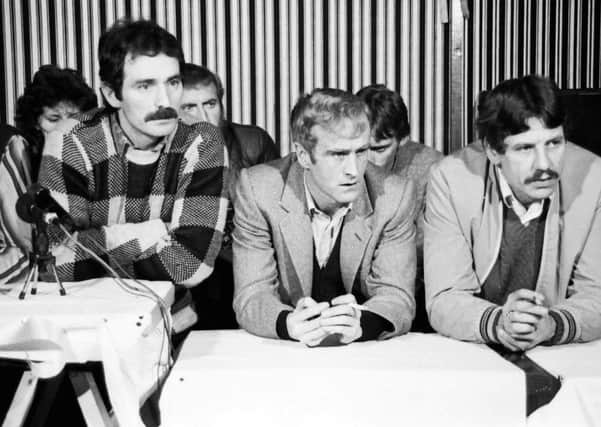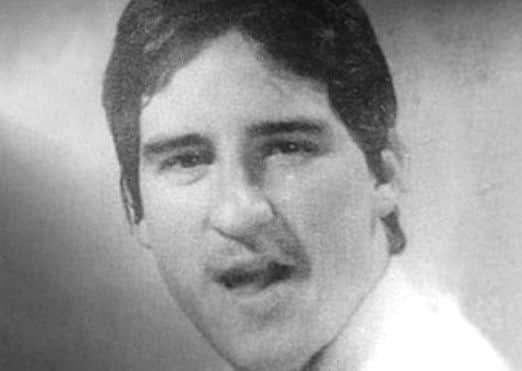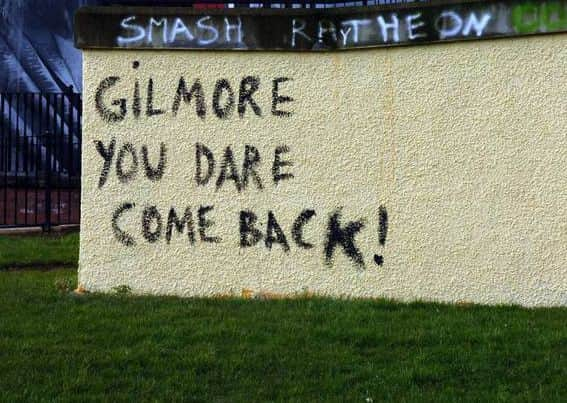Gilmour: collapse of 1984 trial against the Derry 35


Having been recruited by British security forces in the late 70s, Raymond Gilmour ended up fleeing Derry in 1982 and spent the remainder of his life in exile.
He died alone in England a fortnight ago, at the age of 55, with his friends accusing MI5 of abandoning him to a life of addiction and mental health problems.
Advertisement
Hide AdAdvertisement
Hide AdHis name became a byword for telling tales or ‘touting’ ever since his activities in the city were exposed, not least the arrests of 1982.


At a press conference in the Bogside Inn in late December 1984, some of those freed after the charges against them were thrown out, made their feelings known.
A total of 26 of the 35 tried on Gilmour’s ‘evidence’ were freed while others were held back on charges relating to other cases. Many of the 35 had been held in prison for two and a half years.
Speaking at that conference, one of those freed who had been accused by Gilmour, said that while she felt great hatred towards Gilmour for the lies he concocted, it was the RUC who were really to blame.
Advertisement
Hide AdAdvertisement
Hide AdShe mentioned being strip searched twice a day throughout the 47-day trial, describing it as an obscenity designed to humiliate helpless prisoners, and asked why Gilmour and his handler ‘Pete’ were not charged with perverting the course of justice.


Another of those freed said at that conference in 1984 that Gilmour was a puppet who had been used and abused by the RUC.
He also expressed his sympathy to Gilmour’s family.
Those accused by Gilmour said after they were freed in 1984 that they believed he would be “thrown to the wolves” after his evidence collapsed.
In a prophetic statement which turned out to be largely true, according to his friends, the Derry people spoke of how they believed that Gilmour would be abandoned by his handlers and would never get the new life, new job and new home Gilmour he seemed to want.


Advertisement
Hide AdAdvertisement
Hide AdSpeaking at the trial in the Crown Court in Belfast before acquitting the 35, Lord Chief Justice Lord Lowry said he was returning a ‘not guilty’ verdict on all 180 charges against them, adding that he had found Gilmour entirely unworthy of belief.
He further described Gilmour as a man who was oblivious to every natural inclination and obligation, who cared nothing about bonds of kinship or friendship.
He said he could not tell how Gilmour came to be a police informant or under what conditions he worked. He described Gilmour as a self regarding man to whose lips in the witness box a lie inevitably came more easily than the truth.
The ‘Journal’ reported at the time that the defendants - stunned by the turn of events - rose to their feet and cheered as they were cleared of all charges.


Advertisement
Hide AdAdvertisement
Hide AdSpeaking at the time, Gilmour’s brother said the acquittals were a great relief and like a Christmas present. He also spoke of the devastating impact Gilmour’s actions had had on his family.
Raymond Gilmour and his young family had to be rushed out of Cyprus amid reports that a Palestinian Liberation Front hit squad had located them there in the months after his cover had been blown.
The family had been taken to Cyprus on a holiday after Gilmour fled Derry with his wife and two young children in 1982, telling them initially they were going to Butlins before revealing his double life after they left the city. His wife and children would return to Derry shortly after they left.
Raymond Gilmour worked as a RUC Special Branch agent inside both the INLA and the IRA in Derry in the 1970s and 1980s.
Advertisement
Hide AdAdvertisement
Hide AdIt was while in a safe house in Ipswich that he made statements against people in Derry. In November 1982 the IRA kidnapped and threatened to shoot Gilmour’s father in an attempt to get him to retract his statements. They eventually decided not to carry out the threat and released Mr Gilmour in December 1983.
Gilmour admitted in court that while in England he had received large sums of money from his police handlers and visited race tracks and football games as well as going on drinking sessions.
His later life proved anything but glamorous, however, as he battled addiction, mental health issues and was living on benefits when he died.
In 2007 he told the ‘Journal’ that he wanted to return to Derry, but insisted that he had no regrets. “If I had to do it all again, I would. The information I provided saved many lives. I’m not ashamed of this,” he said.